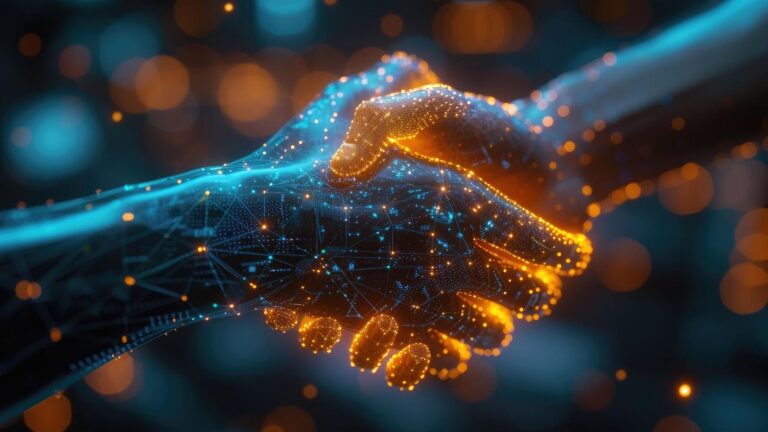Will AI Really Revolutionize Every Industry? A Critical Analysis
It seems like every day we hear bold, grandiose claims about how AI will change the world – most specifically, how it will impact every industry and transform the way we work.
Alphabet CEO Sundar Pichai famously said he believes AI will be more transformative than fire or electricity.
It’s very easy to get caught up in the excitement, but here’s the problem: Most of this noise and hype is coming from multi-billion or even trillion-dollar companies like Alphabet that have a vested interest in selling an AI-powered future.
How realistic are these exaggerated predictions, and how much is just marketing hype?
Will it really transform every business and industry, or is it just another money-making device for some of the world’s richest and most powerful companies?
In this article, I want to cut through the noise and critically examine how well-founded some of these claims are in reality.
Don’t believe the hype?
We’ve become accustomed to hearing bold, sensationalist predictions about the impact of AI on business and the economy. For example, PwC predicts that AI will add more than $15 trillion in value to the global economy by 2030.
To put this into perspective, this is equivalent to the impact of four new countries the size of Germany emerging within the next five years.
In healthcare alone, the market for AI products and services is predicted to reach $208 billion by 2030. AI advocates claim that AI will be better than doctors at diagnosing diseases and revolutionize the process of drug discovery.
In financial services, it is said that the benefits could reach around $1 trillion as industry experts use AI to automate fraud detection, investment and trading algorithms, numerous back-office functions, and customer service.
In manufacturing, it is claimed that robots and automation systems will keep production lines running 24 hours a day, and AI-powered “drones” or “dark” factories will operate without human involvement.
The retail industry is expected to see a rise in cashierless stores and continued growth in online shopping, driven primarily by the adoption of AI technologies, enabling companies to offer more personalized retail experiences and interactive, tech-driven innovations such as virtual fitting rooms and smart mirrors.
But what about industries where human manual skills are unlikely to be replaced, like construction?
It has been said that many processes in design, architecture, engineering, project planning and management will be automated, but as autonomous robots take on the jobs of bricklayers, plumbers and electricians, building technology itself will also be automated.
It certainly seems like big changes are on the way, but how does this stack up to reality?
Reality or marketing?
The picture depicted suggests an imminent revolution across all industries, but in reality, the impact is likely to be more iterative and subtle.
Many predictions are based on AI’s potential rather than its actual capabilities. In the real world, however, there are many hurdles to overcome before this potential can be reached.
First, trust is essential for the wider adoption of AI: For example, the technology to create self-driving cars already exists, but they are not yet a common sight on our roads, despite the promise of efficiency and convenience benefits.
That’s because regulators and the general public still don’t trust the technology. In fact, trust seems to be declining: One survey found that only 53% of people are ready to trust AI today, up from 61% five years ago.
The prediction that AI will bring exponential value to industry may be achievable in theory, but regulatory and data privacy challenges, as well as technical obstacles such as overcoming AI illusions and biases, may not be easily resolved.
In retail, for example, cashierless stores, smart mirrors, virtual fitting rooms – all of the technologies mentioned here have been trialled and prototyped in recent years, but none have yet been adopted mainstream.
But in financial services, we’re seeing evidence that AI is already making a difference: I recently spoke with Ed McLaughlin, CTO at Mastercard, who told me that AI has helped stop $20 billion worth of fraud in the last 12 months, while also dramatically reducing the number of false positives, where genuine customer transactions are declined.
Overall, while I believe AI will have a truly significant impact on business, jobs and industry, this means that the pace of this transformation, at least in the short term, may be slower than some of the hype and hyperbole suggests.
Looking further ahead
Looking at longer timescales, it’s very hard to imagine a future where AI isn’t a game changer.
As evidence of this, I believe we should look at the results of the breakthroughs in technology to date.
Like fire, electricity, and nuclear power, AI is not going away, whether we like it or not. It will just get better, faster, and more powerful.
It seems highly unlikely to me that the technical challenges, along with the legal, social and ethical hurdles, will not go unsolved.
In fact, betting that AI won’t be transformative is a bit like betting that the Internet wouldn’t be transformative 30 years ago. It may be hard to imagine the big changes that AI will bring, but that doesn’t mean they won’t happen.
In summary, I believe all evidence indicates that while an AI revolution is underway, the dramatic changes we are promised will not happen overnight. And the road to AI becoming mainstream may take longer than those selling it would like us to believe.
But the end result will be huge advances and efficiencies that will fundamentally change the way we work and do business. Don’t expect it to happen tomorrow, but don’t think of AI as a passing fad that will soon be forgotten.


